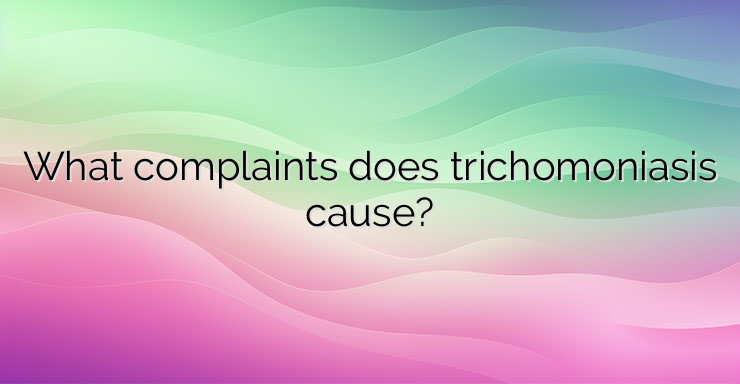What is trichomoniasis? Trichomoniasis is caused by a parasite and is one of the most common sexually transmitted diseases. Symptoms of trichomoniasis include itching, irritation and discharge in women and painful urination in men. The disease can be diagnosed by physical examination and microscopic analysis and treated with an antibiotic (metronidazole). What are the symptoms of trichomoniasis? Symptoms of trichomoniasis can begin between a few days to a month after infection, and there can even be a delay of several months before symptoms appear. In fact, the majority of infected people have no symptoms at all, but can still pass the infection on to others. Women are more likely than men to develop symptoms if infected with trichomoniasis. Symptoms in women Symptoms in women are usually more noticeable than symptoms in men. Women usually experience symptoms of trichomoniasis within 1 to 4 weeks of initial infection. Symptoms of trichomoniasis in women include: Irritation and itching in the vaginal area; Frothy yellow-green vaginal discharge; Strong and unpleasant smell; Pain during intercourse; Pain during urination Complications in women Trichomoniasis can negatively affect the outcome of pregnancy. Pregnant women infected with the parasite are at increased risk of having a premature birth and are more likely to give birth to a low birth weight baby. Symptoms in men Most men with trichomoniasis have no symptoms. When symptoms do develop, they are usually mild and include: Pain when urinating; Pain during ejaculation; Discharge from the penis; Discomfort in the urogenital area Complications in men In men, the infection affects the urethra, and with long-term carriage and when untreated, trichomoniasis can also affect the prostate (leading to prostatitis) and the epididymis (a small gland located in the scrotum, just above the testicle, which is involved in the formation of seminal fluid) leading to epididymitis. What is the relationship between trichomoniasis and HIV? If a person has trichomoniasis, they are more susceptible to infection with HIV, the virus that causes AIDS. Trichomoniasis also increases the likelihood that an HIV-positive person will transmit HIV to their sexual partners. There is a stronger association between trichomoniasis and HIV in women than in men. What are the causes of trichomoniasis? Trichomoniasis affects both men and women and is caused by a single-celled parasitic organism known as Trichomonas vaginalis, a microscopic protozoan (average 10-20 µm) and invisible to the naked eye. Trichomonas reproduction occurs by division every 8-12 hours. An important feature of trichomonas is their ability to phagocytose (swallow) other microorganisms (bacteria), thereby becoming a reservoir of pathogenic agents of other infections, including sexually transmitted ones, such as gonorrhea (thrips).This explains the frequent presence of co-infections in trichomoniasis. The infection is sexually transmitted and can spread through sexual intercourse as well as skin-to-skin contact involving the vagina or penis. The parasite can live in and around the vagina or in the penis and usually does not attach to other parts of the body. The disease is not spread by shaking hands, touching or kissing. In women, trichomoniasis causes a vaginal infection called vaginitis. In men, the parasite infects the urethra (urethritis), the tube in the penis through which semen and urine pass to leave the body. The presence of the parasite and the resulting inflammation cause the characteristic itching, pain, discharge and odor associated with trichomoniasis. References: 1. Centers for Disease Control and Prevention. Trichomoniasis – CDC fact sheet 2. Van der pol B. Clinical and Laboratory Testing for Trichomonas vaginalis Infection 3. Gaydos CA, Klausner JD, Pai NP Kelly H, Coltart C, Peeling RW. Rapid and point-of-care tests for the diagnosis of Trichomonas vaginalis in women and men 4. Verywell Health. What Is Trichomoniasis?


Leave a Reply